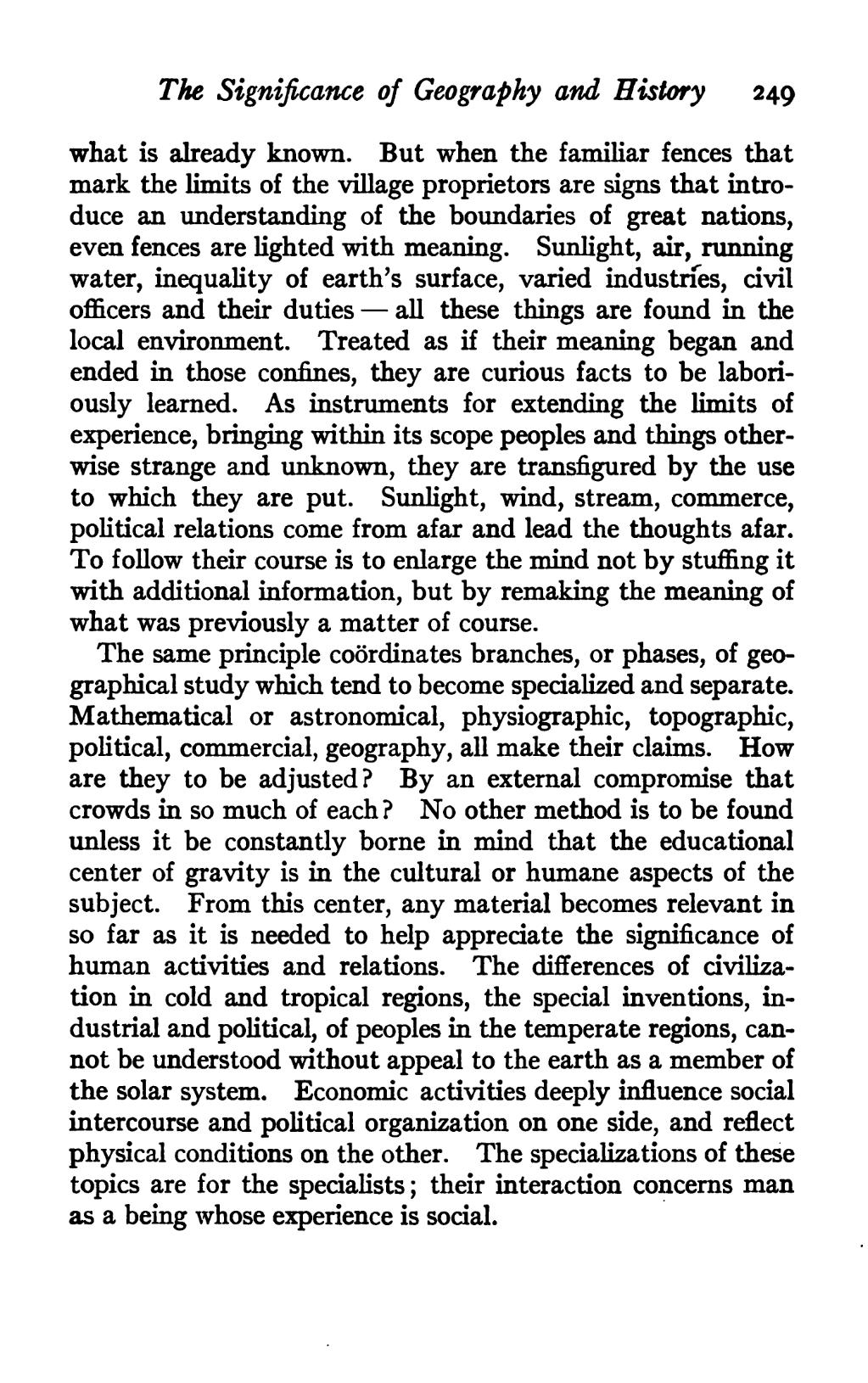what is already known. But when the familiar fences that mark the limits of the village proprietors are signs that introduce an understanding of the boundaries of great nations, even fences are lighted with meaning. Sunlight, air, running water, inequality of earth's surface, varied industries, civil officers and their duties—all these things are found in the local environment. Treated as if their meaning began and ended in those confines, they are curious facts to be laboriously learned. As instruments for extending the limits of experience, bringing within its scope peoples and things otherwise strange and unknown, they are transfigured by the use to which they are put. Sunlight, wind, stream, commerce, political relations come from afar and lead the thoughts afar. To follow their course is to enlarge the mind not by stuffing it with additional information, but by remaking the meaning of what was previously a matter of course.
The same principle coördinates branches, or phases, of geographical study which tend to become specialized and separate. Mathematical or astronomical, physiographic, topographic, political, commercial, geography, all make their claims. How are they to be adjusted? By an external compromise that crowds in so much of each? No other method is to be found unless it be constantly borne in mind that the educational center of gravity is in the cultural or humane aspects of the subject. From this center, any material becomes relevant in so far as it is needed to help appreciate the significance of human activities and relations. The differences of civilization in cold and tropical regions, the special inventions, industrial and political, of peoples in the temperate regions, cannot be understood without appeal to the earth as a member of the solar system. Economic activities deeply influence social intercourse and political organization on one side, and reflect physical conditions on the other. The specializations of these topics are for the specialists; their interaction concerns man as a being whose experience is social.
